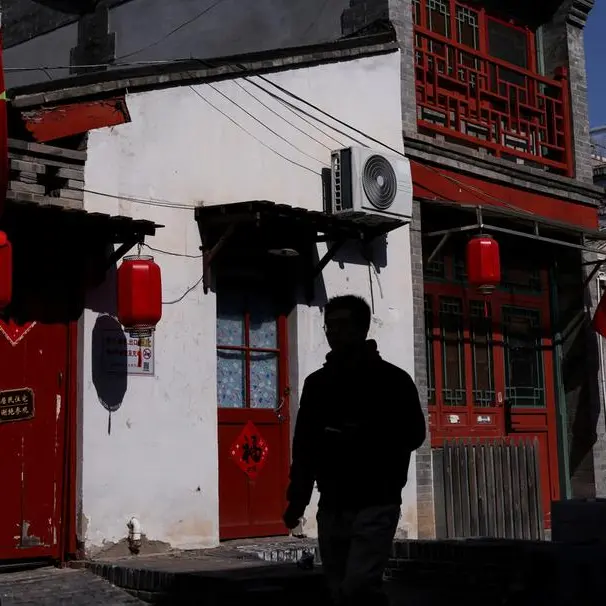PHOTO
President Marcos has ordered a 'whole-of-government approach' to help farmers and to ensure public safety as the Philippines faces the impact of El Niño and La Niña.
'The Department of Agriculture (DA) was ordered to closely coordinate with the Philippine Crop Insurance Corp. to assess any regulation barriers imposed by the insurance commission to ensure that prompt financial aid reaches affected farmers,' a Presidential Communications Office (PCO) statement released yesterday read.
The environment department, the PCO said, was tasked 'to engage in collaborative efforts to devise engineering solutions that alleviate the need for extreme water conservation measures.'
The El Niño task force previously said it is not discounting the possibility that Metro Manila may experience a water shortage because of the expected increase in consumption during summer. It has urged the public to save water and to limit the use of appliances.
The agency was also directed to work with the Office of Civil Defense (OCD) to gather data on water oversupply and undersupply situations and to raise public awareness on the importance of building additional dams in mitigating the impact of El Niño.
The President has also ordered the Bureau of Fire Protection to coordinate with the health department to assess and implement requisite measures to ensure the safety of health facilities from fire hazards.
The OCD was also instructed to work closely with the tourism department to address the impact of the weather phenomenon on tourist spots, including issues related to water availability, energy resources, public health and safety.
Agricultural damage hits P2.6 billion
The damage of the El Niño phenomenon to the agriculture sector in 10 regions has reached P2.63 billion affecting 54,2023 farmers as of April 3, according to data from the DA.
Among the regions affected are Cordillera Administrative Region (CAR), Ilocos Region, Cagayan Valley, Central Luzon, Calabarzon, Mimaropa, Bicol Region, Western Visayas, Zamboanga Peninsula and Soccsksargen, DA spokesman Arnel De Mesa said.
'The bulk of the damage was in rice with P1.7 billion, followed by corn at P591 million. In terms of areas, severely hit was Mimaropa region or Region 4-B at P770 million; followed closely by Western Visayas, at P739 million damage,' De Mesa said.
He added that despite the increase in the impact of El Niño to palay plantations, of the 34,264 hectares affected, 9,300 hectares were totally damaged while 25,000 hectares were partially damaged and can still recover.
'The Philippine Atmospheric, Geophysical and Astronomical Services Administration has declared that El Niño is already decaying but its effect could still persist until May so we expect that (damage) will peak in April and will go down in May,' he said.
Based on data from the DA, the total volume loss for palay could reach 72,733 metric tons; 35,885 MT for corn, and 8,173 MT for high value crops.
'The affected rice area of 34,264 hectares is 3.57 percent of the total target area planted of 960,864.48 hectares, while the production loss of 72,733 MT is equivalent to around 0.79 percent of the target production of 9,218,358.28 MT, both for the dry cropping season this 2024,' the DA said.
It added that for corn, area affected by the dry spell was at 16,956 hectares or 1.54 percent of the total target area planted of 1.1 million hectares with production loss of 35,885 MT or 0.80 percent of target production of 4.5 million MT, both for the dry cropping season this 2024.
The DA added that at least P1.08 billion worth of assistance was distributed to the affected farmers, including hybrid rice seeds worth P 7.87 million and fertilizers worth P7.63 million to non-vulnerable areas in Western Visayas, and corn seeds worth P1.16 million in Ilocos Region.
'Also, financial assistance from the Rice Farmers Financial Assistance Program has been given to 139,002 farmers in Cagayan Valley with a total amount of P701.96 million and 71,795 farmers in Mimaropa Region with a total amount of P 362.56 million. Through the Philippine Native Animal Development Program, the DA has also distributed a total of 60,013 native animals to 334 groups and 534 individual farmers nationwide,' it added.
According to the DA, at least P10.20-million indemnity was awarded by the Philippine Crop Insurance Corp. to at least 994 farmers in CAR, Ilocos, Cagayan Valley, Central Luzon, Calabarzon, Mimaropa, Zamboanga Peninsula and Soccsksargen regions.
No rice price reduction
Agriculture Secretary Francisco Tiu Laurel Jr. admitted that he does not expect the retail price of rice to go down amid the impact of the El Niño, adding that the cost ranged between P47 and P57 per kilo.
He added that the retail price of the staple varies in the different markets in the country.
According to Laurel, prices of rice in the world market are on a downward trend.
'From January up to present, from $700 per ton, it (price in the world market) is down to $600 per ton, we expect hopefully it (retail price) will go down this second half of this year,' Laurel added.
He said the impact of El Niño in the agriculture sector is expected to persist.
'As of the moment, to be honest, we are still at the height of the El Niño,' Laurel said.
Meanwhile, the Amihan National Federation of Peasant Women and Kilusang Magbubukid ng Pilipinas criticized the government's alleged neglect and sluggish response amid the damage brought by the El Niño phenomenon.
'The government should release the NFA rice stored in the warehouses and distribute to the farmers and fisherfolk affected by the El Niño instead of selling to the private sector,' Amihan secretary general Cathy Estavillo said.
'El Niño is a climate crisis. The response should be immediate and comprehensive, with short-term and long-term relief and rehabilitation efforts. What we have seen so far are the usual government programs already in place before the calamity such as credit assistance, insurance claims and a meager financial assistance,' Estavillo added.
Copyright © 2022 PhilSTAR Daily, Inc Provided by SyndiGate Media Inc. (Syndigate.info).





















